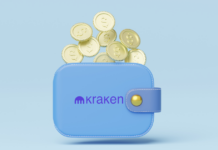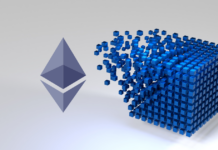Finally, the day has arrived. Sui mainnet launched, one of the most anticipated mainnet launches of 2023. Sui has been one of the hottest topics in the crypto space for the last couple of months. So, Sui has the momentum going.
To our dismay, it did not do an airdrop, but SUI Network will perform well. Maybe up to 30x? And here are 6 reasons why I think so!
#1 Team and Backers
Mysten Labs is the company behind the Sui network. The core team consists of 13 people. However, there are 5 founders.
- Evan Cheng.
- Sam Blackshear.
- Adeniyi Abiodun.
- George Danezis.
- Kostas Chalkias.
Their most recent experience is their involvement in Diem. That was a digital currency for Meta (Facebook). However, when Meta stopped the project, the Sui network was born. During their time at Meta, they developed the Move programming language. I get back to this important aspect later. So, for starters, we already have a solid team.
Mysten Labs team is very big, visible and have a lot of experience, have a look https://t.co/FAbjmtpJVE. Sui backers are even bigger 🤫 pic.twitter.com/PosP5Tjgh9
— Gazo (💙,🧡)✨🔴_🔴✨🛸 🌊📘 🐐 (@GhazwanAli18) April 10, 2023
Besides the team, they also have a strong community. Although, this community was upset that there was no airdrop. To be fair, Sui always insisted that there would be no airdrop.
On the other hand, their backers are also impressive. For example:
- $36 million Series A investment fund from a16z, as lead investor.
- $300 million Series B investment fund from FTX. Yes, I know, but it didn’t hurt them as much as you would expect.
- Other backers are, for instance:
- Binance Labs.
- Accel Partners.
- Benchmark Capital.
These are some serious names. So, let’s move on to my next point. How fast is Sui?
#2 Fast Transactions
We all know how annoying it can be if you need to wait for a transaction to confirm. Bitcoin can take up to an hour. Ethereum can also have its moments. However, Sui offers 120,000 TPS or transactions per second. In their testnet, they reached 297,000 TPS.
A year after Sui’s first performance demonstration, we want to share an update worth celebrating:
🤯Sui, with 100 globally distributed validators, achieved peak throughput of nearly 300K TPS
💥Sui’s time to finality is ~480 millisecondshttps://t.co/MXquQ6kbf9🧵Let’s dive in
— Sui (@SuiNetwork) April 27, 2023
Their time to finality was ~480 milliseconds. That’s the time between submitting a transaction and when it’s approved. This is because of the ‘parallel transactions‘ feature. In other words, traditional blockchains execute transactions one by one. However, Sui allows users to execute various transactions at the same time.
On top of that, Sui also scales horizontally. This means that validators can keep adding computers. More computers mean more computational power. Thus, allowing even more parallel transactions. Can you see how that improves transaction speed?
#3 Cheap Transactions
The next feature is about low-cost transactions. Now, there are plenty of other blockchains that offer cheap transactions. However, Sui has an interesting feature and option here.
In other blockchains, transaction costs can change. Occasionally, they’re low, sometimes they’re higher. Does Ethereum ring a bell? They still have high transaction costs. The other day it went up to $60. It all depends on network demand.
Anyway, Sui has epochs that last 24 hours. The end of each epoch can rearrange validators and their voting power. But another important thing is that during each epoch, gas prices remain stable. Besides being stable, they are also low. The testnet showed us this already.
8/ Gas fees on @SuiNetwork consist of two components: computation and storage.
Computational gas fees are determined by a gas-pricing mechanism.
Sui’s storage fund receives storage gas fees and a portion of the network’s staking rewards. pic.twitter.com/CClDlnlZ7e
— Messari (@MessariCrypto) May 2, 2023
This allows for better planning of gas fees pricing. As a result, users have a more profound understanding of what their costs will be. Did you use Sui’s testnet? How did you like it?
#4 Sui’s Ecosystem
The Sui network already has a massive testnet ecosystem. Hundreds of projects are roaring to get a piece of the mainnet action. Areas that you can expect, are, for instance:
- DeFi – SuiSwap, Araya Finance, MovEx
- NFTs – Sui Punks, Hanako, Fuddies
- Name Services – Sui Name Service
- Launchpads – Clutchy, Tocen, Starspace, Meadow.
- Wallets – Sui Wallet, Suiet, Martian, Glass, Ethos, Fewcha.
- GameFi – Plasmaverse, Gamio, Trial Extreme.
- Infrastructure – MetaOracle, SupraOracles.
- Bridges – Axelar, Wormhole, OmniBTC.
Most Anticipated DeFi Projects on Sui
Check out the top-tier DeFi Projects on @SuiNetwork ranking by Twitter Followers. 🌊
🥇 @suiswap_app
🥈 @CetusProtocol
🥉 @joinMovEX @umi_protocol @ArayaFinance@OmniBTC@bayswap@OnchainTrade@abelfinance@Turbos_finance#Sui #Airdrop pic.twitter.com/N9jClX8zWk— Sui Daily (@SuiDailyTK) April 9, 2023
It promises to be exciting. New chains need projects to gain traction. Sui seems to have plenty of that. In contrast to Sui, plenty of these projects may have airdrops. So, stay alert!
A note of warning though, with new projects there will also be new scamming or rugging attempts. Be careful out there. DYOR, it always was and remains important.
#5 Move Programming Language
Sui and Aptos both use the Move programming language. However, they each use different Move versions. Sui’s version also differs from the Core Move version. The idea for Move is to become the “JavaScript of web3”.
💻 The Diem team's Move programming language is one of the most exciting innovations in recent years, with enhanced features that:
– Ensures safety and security in smart contract development.
– Prevents common vulnerabilities and errors.
🧵#SuiFusion #Move #DEXAggregator pic.twitter.com/Sgj1GhwoQA— SUI Fusion 💧 (@SUI_Fusion) April 29, 2023
Now, Aptos and a few other chains use the Diem based Move. But Sui rewrote Move. This made it easier to write specific smart contracts. For example, for NFTs. The original Move and Diem date back to before there were NFTs. Move brings greater safety and security. Especially for an easy transition from Web2 to Web3.
#6 Better User Experience
DeFi and TradFi primitives on-chain produce high-end UX (user experience). Easy-to-use projects will have high numbers of users. Above all, Sui is targeting Web3 users. This means, among others, that devs can offer:
- Upgradeable NFTs. This results in them being more valuable.
- DeFi and TradFi primitives on-chain.
- Tokenizing assets. This is a current hot topic for blockchains. Think of the current RWA narrative or real-world asset tokenization.
- Offer reward and loyalty programs.
- Build complex games.
- Social media networks with decentralized blockchain technology.
4.2 Token Use Case
• Transaction fee: SUI is used as the currency to pay gas for all transactions on the Sui.
• Staking/bonding/slashing asset: Validators stake SUI to participate in the transaction consensus process. In case of fraud, SUI tokens will be kept as punishment.
— Sui Insights 💧 (@SuiInsights) December 15, 2022
We, as users, can enjoy easy-to-use interaction with these Dapps. This will attract both devs and their apps and users to the chain. More users mean more success. In the end, this will result in a higher price for the SUI token.
⬆️ For more cryptocurrency news, check out the Altcoin Buzz YouTube channel.
⬆️ Our popular Altcoin Buzz Access group generates tons of alpha for our subscribers. And for a limited time, it’s Free. Click the link and join the conversation today.




























